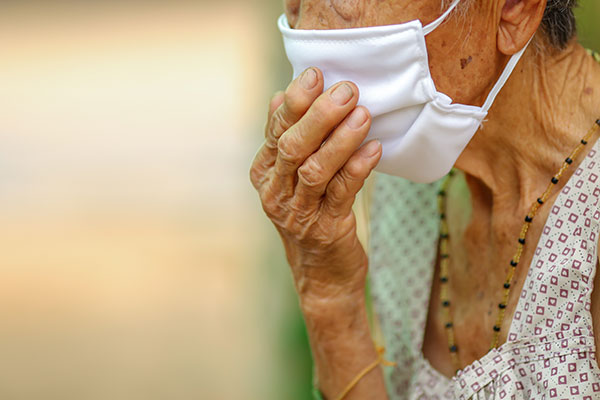When David Bowie passed on January 10, 2016, at age 69, he left behind a…

Developing an Effective COVID-19 Vaccine for the Elderly is a Challenge
 Older Americans, the most at risk of COVID-19, are the least likely demographic to respond well to a vaccine. A vaccine shot works by fooling the body into believing it has been infected with a virus, thereby prompting its immune system to fight the intruding pathogen by making antibodies. Unfortunately, as we age, antibody production weakens, part of the process known as immunosenescence. A compromised immune system makes older adults more susceptible to viral and bacterial infections. The Wall Street Journal reports that 90 percent of flu deaths in the US every year are people over the age of 65.
Older Americans, the most at risk of COVID-19, are the least likely demographic to respond well to a vaccine. A vaccine shot works by fooling the body into believing it has been infected with a virus, thereby prompting its immune system to fight the intruding pathogen by making antibodies. Unfortunately, as we age, antibody production weakens, part of the process known as immunosenescence. A compromised immune system makes older adults more susceptible to viral and bacterial infections. The Wall Street Journal reports that 90 percent of flu deaths in the US every year are people over the age of 65.What’s age got to do with it? The thymus, located center of your chest just below the neckline between the lungs, is a major source of pathogen fighting T-cells. Some of these specialized cells help the immune system make additional defenses against infection called antibodies. As we age, the thymus production of adaptable T-cells is depleted as the thymus fills with fatty tissue. The result is an old immune system that is ill-equipped to fight off new viruses. The Center for Disease Control and Prevention (CDC) posted a July 17 analysis of more than 50,000 COVID-19 deaths in the US, identifying that 80 percent were people age 65 or more.
An aging thymus also complicates the development of a COVID-19 vaccine. A vaccine’s design provides instructions to our immune system, which T-cells help to guide appropriately. However, the thymus has exhausted most of its reserve T-cells that adapt to recognize unknown pathogens by the age of 50; thus, the ability to “train” other immune cells to fight is lost. Many vaccines rely on the skill sets of fully functional T-cells.
Traditionally, the biopharmaceutical vaccine market has concentrated efforts on childhood vaccines. Martin Friede, a coordinator for vaccine and product and delivery research with the World Health Organization (WHO), states, “Up until very recently most of the focus of the vaccine community has been on saving lives of young children. The people who need the vaccine the most may actually be the people in whom the vaccine might not work.” Friede further comments that it isn’t solely about the thymus as individual vitality can translate into different vaccine responses. Some older people may be off to play a round of golf while others may be too frail to walk unaided.
Deputy director of clinical research for the Institute of Vaccine Safety at Johns Hopkins Bloomberg School of Public Health, Dr. Kawsar Talaat, echoes Friede’s sentiments, “We hadn’t been designingvaccines for the elderly for a long time.” Dr. Talaat is helping to facilitate coronavirus vaccine developers to test their shots in older adults. The Food and Drug Administration (FDA) is also working with drug and biotechcompanies easing restrictions for experimental vaccines to be tested earlier during clinical trials on older adults.
The New York biopharmaceutical giant Pfizeris currently conducting tests for potential COVID-19 vaccines in older people.The company is studying whether increasing the vaccine dosage could better protect the elderly as higher doses in existing flu vaccines make them more effective in older populations. At Moderna Therapeutics, results from a phase-one trial of its novel mRNA vaccine are in; however, a second phase two trial is being conducted specifically for adults age 55 and older. Many biotech and pharmaceutical companies are eager to be the first to introduce a successful FDA approved COVID-19 vaccine.
If the development of a COVID-19 vaccine specifically for the elderly remains elusive, scientists are hopeful that immunizing others around them can make a difference. Vaccinating children, health care workers, and potentially silent coronavirus carriers, could create enough herd immunity and would lower the risk of older people becoming infected. Sometimes it is possible to protect a vulnerable group by targeting other groups around them. Meanwhile, the work continues to find a workable COVID-19 vaccine for the most vulnerable Americans, the elderly.
We help seniors and their families deal with challenges around appropriate care and how to pay for it. If you would like to discuss your situation with us, please don’t hesitate to reach out.



